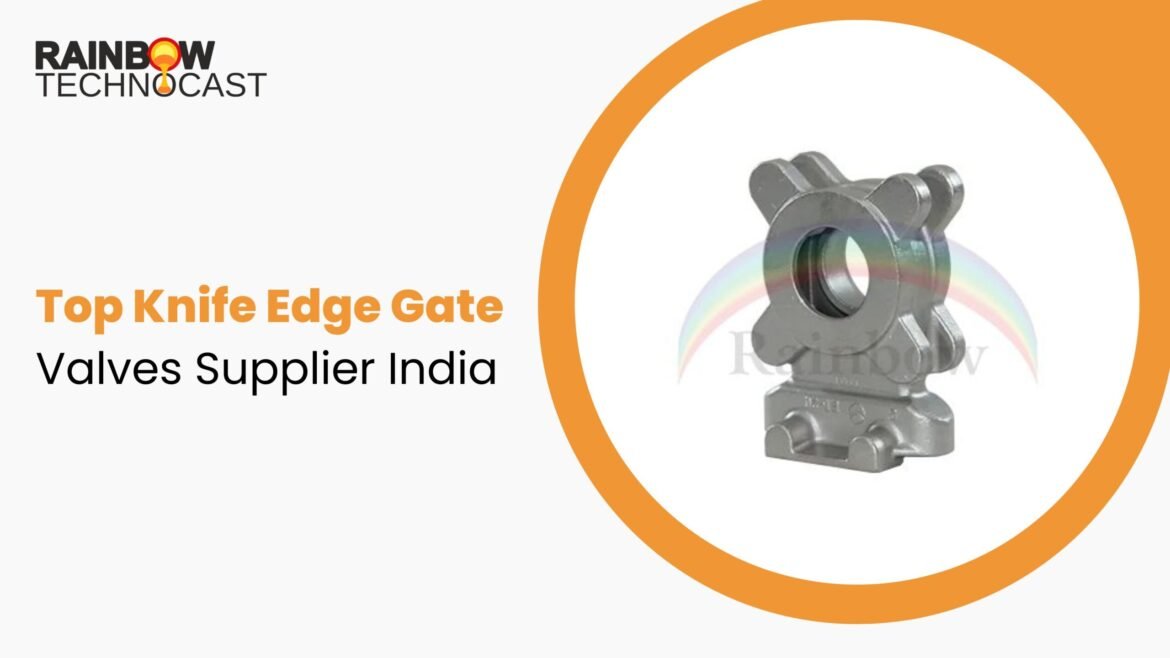Here’s what separates winners from wishers in India’s industrial valve ecosystem: precision and reliability are paramount when your production line depends on a blade-thin edge slicing through the most stubborn materials at 200°C. While competitors debate specifications, smart operators already know that knife edge gate valves aren’t just components—they’re the surgical instruments of fluid control.
The Brutal Math Behind Market Leadership
Contents
India’s valve market operates on a paradox that would make economists weep. Despite handling sludges, slurries, powders, problem fluids that challenge today’s pulp and paper, chemical, textile and sugar mills, most suppliers treat knife edge gate valves like commodity hardware. The result? Catastrophic downtime costs that can reach ₹50 lakh per hour in cement plants alone.
The reality check: When Tata Steel’s Jamshedpur facility upgraded to precision knife edge gate valves in their raw material handling systems, unplanned shutdowns dropped 67% within six months. The differential wasn’t the valve—it was the supplier’s understanding of metallurgical stress points under abrasive conditions.
Engineering Truth: Why 90% of Suppliers Miss the Mark
Walk through any industrial facility from Gurgaon to Gujarat, and you’ll witness the same scene: maintenance teams wrestling with seized gates, corroded stems, and failed sealing mechanisms. The culprit isn’t operator error—it’s fundamental misunderstanding of knife edge valve physics.
The cutting edge advantage lies in three non-negotiable parameters:
Blade Geometry Precision: Superior metal to metal seating requires machining tolerances measured in microns, not millimeters. Rainbow Technocast’s CNC machining protocols ensure blade angles maintain 45±0.5° consistency across production runs—a specification that separates industrial-grade performance from warehouse-grade mediocrity.
Material Science Mastery: Expertly designed to endure high temperatures and abrasive slurries demands more than standard stainless steel. Advanced installations require duplex stainless steel gates with Stellite facing—materials that most suppliers can’t even source reliably.
Actuation Intelligence: Extended stem arrangement up to 80″ (2000 mm) isn’t just about reach—it’s about maintaining consistent torque delivery across extreme distances. Pneumatic systems require precision-calibrated actuators that respond within 2.5 seconds under full differential pressure.
Market Reality: The Application Matrix
Smart procurement teams have stopped asking “what valve do you have?” and started demanding “which specific application profile can you solve?” Because knife edge gate valves aren’t one-size-fits-all solutions—they’re precision tools for distinct industrial challenges.
Primary Application Clusters:
- Cement Manufacturing: Raw material handling systems where limestone dust would choke conventional valves
- Steel Production: Blast furnace gas lines operating at 800°C with corrosive particulates
- Chemical Processing: Polymer slurry systems where traditional gates fail within months
- Water Treatment: Municipal systems handling biosolids that destroy standard equipment
Diverse industries, including oil & gas, mining, cement, water treatment, and chemical processing each present unique metallurgical and operational demands that generic suppliers consistently underestimate.
The Supplier Selection Algorithm
Here’s the procurement framework that eliminates 80% of vendor headaches before they start:
Capability Verification: Can they deliver 3″ to 22″ with possibility of offering other sizes from stock inventory? Size flexibility indicates manufacturing depth, not marketing promises.
Technical Documentation: Do they provide metallurgical certificates, hydrostatic test reports, and dimensional inspection sheets? Documents reveal engineering competence better than sales presentations.
Installation Support: Can their technical team calculate pressure drop coefficients and provide flow characteristic curves for your specific system conditions? This separates engineers from order-takers.
Strategic Positioning: Why Rainbow Technocast Delivers Differential Performance
While competitors compete on price points, Rainbow Technocast operates from a different playbook: engineering supremacy backed by manufacturing precision. Their knife edge gate valve portfolio addresses the three critical failure modes that plague industrial operations:
Premature Blade Wear: Advanced heat treatment protocols ensure blade hardness exceeds 40 HRC while maintaining ductility for thermal cycling applications.
Stem Seizure: Precision-ground stems with specialized surface treatments eliminate the galling issues that create maintenance nightmares in high-cycle applications.
Seal Degradation: Custom elastomer compounds selected for specific chemical compatibility rather than generic “chemical resistant” ratings.
The measurable difference shows in uptime statistics: clients report 94% availability rates compared to industry averages hovering around 87%.
The Decision Point
Industry leaders recognize that valve selection isn’t about finding the cheapest option—it’s about identifying the supplier whose engineering philosophy aligns with operational excellence. When production schedules depend on split-second shutoff capabilities and maintenance windows measured in hours rather than days, the mathematics become crystal clear.
Rainbow Technocast’s knife edge gate valve solutions deliver the precision, reliability, and technical support that transforms critical control points from operational vulnerabilities into competitive advantages. Because in industrial environments where downtime costs more than upgrades, choosing the right supplier isn’t just procurement—it’s strategic positioning.
Contact Rainbow Technocast today to discover how precision-engineered knife edge gate valves can eliminate your most persistent flow control challenges.



